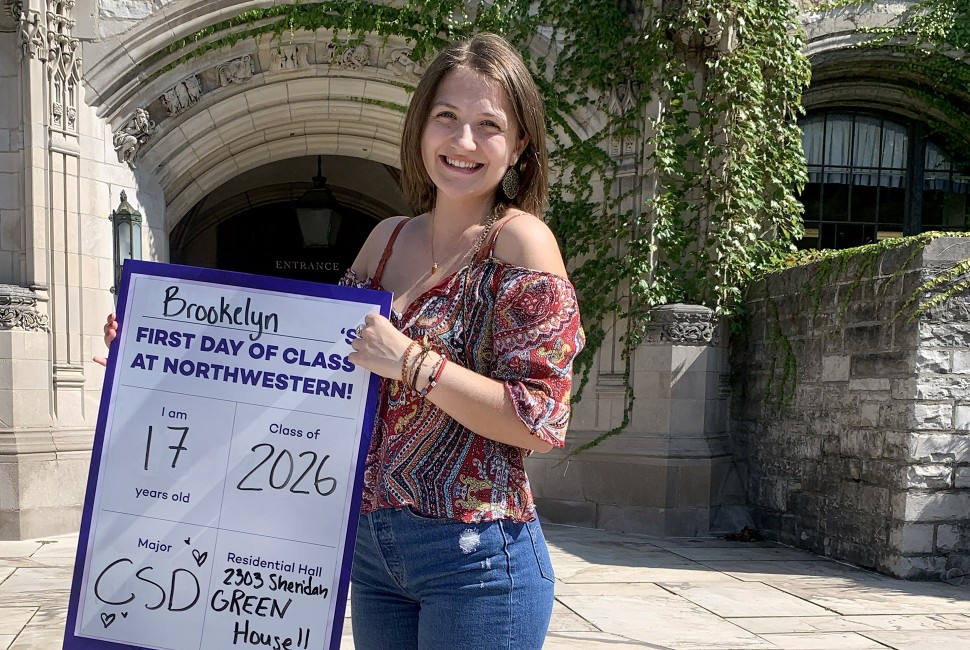Nestled along the shores of Flathead Lake and a short jaunt by boat to the pristine Wild Horse Island, Dayton, Montana, is more nature than town. It is home to 111 residents, according to the 2020 Census, a handful of businesses, a post office and a small elementary school, where Brooke Slonaker was one of three students in her class.
“I’ve had a very rural experience, very ‘middle of nowhere,’” said Slonaker, a first-year student at Northwestern University. As a first-generation, low-income student, Slonaker realized at a young age she would need to figure out how to get to college herself.
“While neither of my parents went to college, my mom especially always wished she had,” she said. “They set that seed and showed me a good work ethic, and I had to take it from there.”
Sixteen of the nation’s most prominent colleges and universities, including Northwestern, have teamed up in a new effort to help students, from small-town and rural America, like Slonaker, enroll in, succeed at, and graduate from the undergraduate program of their choice.
The STARS College Network (Small-Town And Rural Students) will build on efforts to create new pathways to college for students who might not otherwise recognize the full range of educational opportunities available to them. It is supported by a $20 million gift from Trott Family Philanthropies, the foundation of Byron and Tina Trott.
“Our hometowns, our families’ finances and our parents’ educations often define us in many ways, but they must not determine our access to learning,” said Northwestern President Michael Schill, a first-generation college student. “We are excited to be part of the STARS College Network, which will open the world to many students who can benefit from additional support getting into and succeeding in college.”
In addition to Northwestern, the network includes Brown University, California Institute of Technology, Case Western Reserve University, Colby College, Columbia University, Massachusetts Institute of Technology, The Ohio State University, University of Chicago, University of Iowa, University of Maryland, University of Southern California, University of Wisconsin, Vanderbilt University, Washington University in St. Louis, and Yale University.
Member institutions said STARS will support efforts including:
- Pipeline programs that bring students from rural communities and small towns to campus over summer break to help them prepare academically and for college life
- On-campus events for prospective students from rural areas and small towns, including flying students in from their hometowns
- Expanded visits by college admissions staff to high schools in small towns and rural communities
- Support for students in the college application process, including workshops and sessions designed to help students throughout their college search
- Help navigating financial aid and scholarship opportunities, and more
All programming is free to students who register with STARS.
“Northwestern has long been committed to student-centered partnerships that leverage shared resources to advance college access,” said Christopher Watson, associate vice president for student outreach and dean of undergraduate enrollment. “The STARS Network promises an unprecedented collective effort with the power to change lives, and we’re proud to be part of it.”



